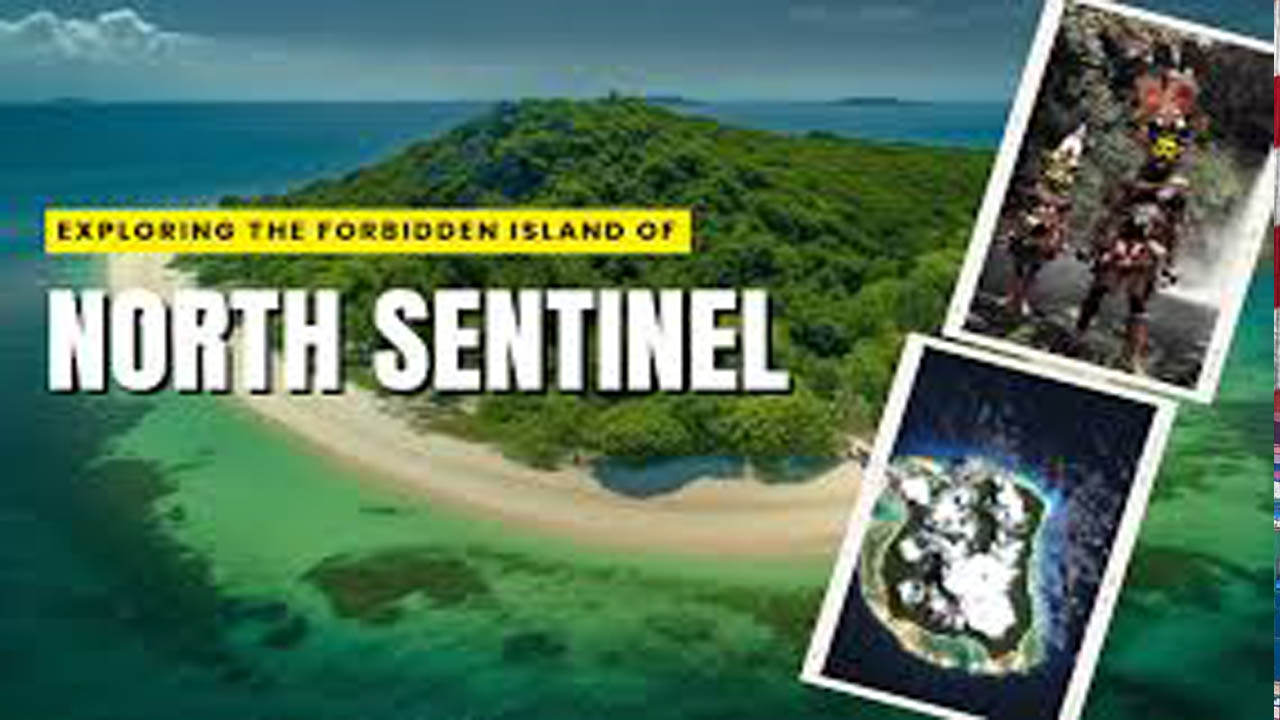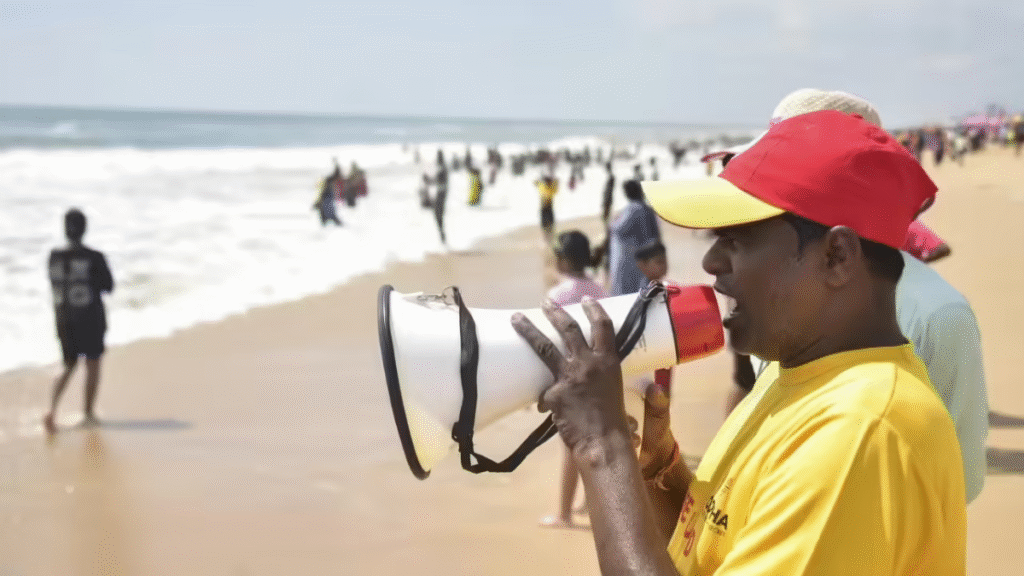Now Reading: A World Apart: Unveiling the Enigma of North Sentinel Island
-
01
A World Apart: Unveiling the Enigma of North Sentinel Island
A World Apart: Unveiling the Enigma of North Sentinel Island

North Sentinel Island, a tiny speck in the vast expanse of the Bay of Bengal, remains one of the world’s most profoundly isolated places. Its inhabitants, the Sentinelese, are a tribe that has resolutely resisted contact with the outside world, maintaining a way of life that likely stretches back millennia. This island, shrouded in mystery and protected by a fierce determination for solitude, continues to fascinate and perplex anthropologists and the general public alike.
Here’s a closer look at the enigmatic North Sentinel Island and its unique people:
1. A Legacy of Isolation:
The Sentinelese are believed to be descendants of the first human populations to emerge from Africa, arriving in the region tens of thousands of years ago. Their isolation has fostered a unique cultural and linguistic development, largely untouched by the sweeping changes that have shaped the rest of the world. They are hunter-gatherers, relying on the island’s resources for survival, and their language remains a complete enigma to linguists.
The island’s geographical isolation, coupled with the tribe’s aggressive defense of their territory, has effectively shielded them from external influences. Historical records indicate that attempts at contact, dating back to the British colonial era, have consistently been met with hostility. This resistance is not merely a matter of self-preservation; it is a powerful assertion of their right to autonomy and cultural integrity.
2. The 2004 Tsunami and its Aftermath:
The devastating 2004 Indian Ocean tsunami dramatically illustrated the Sentinelese’s resilience and self-sufficiency. In the aftermath of the disaster, a helicopter survey revealed that the tribe had survived, even firing arrows at the aircraft. This incident confirmed their ability to adapt to natural calamities and their continued determination to remain isolated.
While the tsunami likely had a significant impact on the island’s ecosystem and the Sentinelese way of life, it’s believed that their knowledge of the local environment and their survival skills allowed them to weather the catastrophe. The event also underscored the importance of respecting their autonomy and avoiding any intrusion that could disrupt their delicate balance.
3. The John Allen Chau Incident and its Global Repercussions:
The tragic death of American missionary John Allen Chau in 2018, who attempted to make contact with the Sentinelese, brought the island and its inhabitants into sharp focus. This incident sparked a global debate about the ethics of contacting isolated tribes and the importance of respecting their right to self-determination.
The Indian government, which nominally administers the Andaman and Nicobar Islands, has adopted a policy of non-interference, recognizing the dangers of exposing the Sentinelese to external diseases and the potential for cultural disruption. This policy aligns with international guidelines that emphasize the need to protect the rights and well-being of isolated populations.
The Chau incident highlighted the profound ethical dilemmas surrounding contact with isolated tribes. While some argue for the potential benefits of outreach, such as providing medical assistance or documenting their culture, the overwhelming consensus is that the risks far outweigh any potential rewards.
4. The Dangers of Contact:
The Sentinelese, having lived in complete isolation for generations, lack immunity to common diseases that are prevalent in the outside world. Even a seemingly innocuous illness like the common cold could have devastating consequences for the tribe.
Furthermore, contact could introduce cultural disruption, erode their traditional practices, and lead to social disintegration. The Sentinelese have thrived for millennia without external intervention, and any attempt to impose a different way of life would be inherently destructive.
The long term effects of introducing outside elements into a population that has been isolated for so long are unpredictable, and potentially catastrophic.
5. A Policy of Protection and Non-Interference:
The Indian government’s policy of non-interference is rooted in a deep respect for the Sentinelese’s autonomy and a recognition of the potential dangers of contact. This policy involves strict measures to prevent unauthorized access to the island, including patrolling the surrounding waters and enforcing a restricted zone.
The government’s approach is consistent with international best practices, which emphasize the importance of protecting the rights and well-being of isolated tribes. This policy is also a reflection of the growing awareness of the need to preserve cultural diversity and respect the right of indigenous peoples to self-determination.
The focus is on monitoring the island from a distance, without attempting to establish direct contact. This approach allows researchers to gather valuable information about the Sentinelese’s way of life while minimizing the risk of harm.
North Sentinel Island remains a poignant reminder of the vast cultural diversity that exists in our world and the importance of respecting the rights of isolated communities. The Sentinelese, in their unwavering determination to remain separate, offer a unique perspective on human resilience and the enduring power of cultural autonomy. Their story compels us to reflect on our own relationship with the natural world and the ethical responsibilities we bear towards those who choose to live apart.









